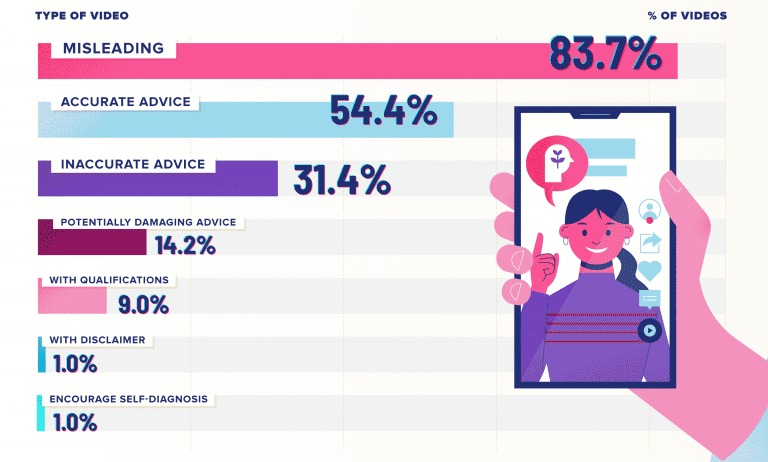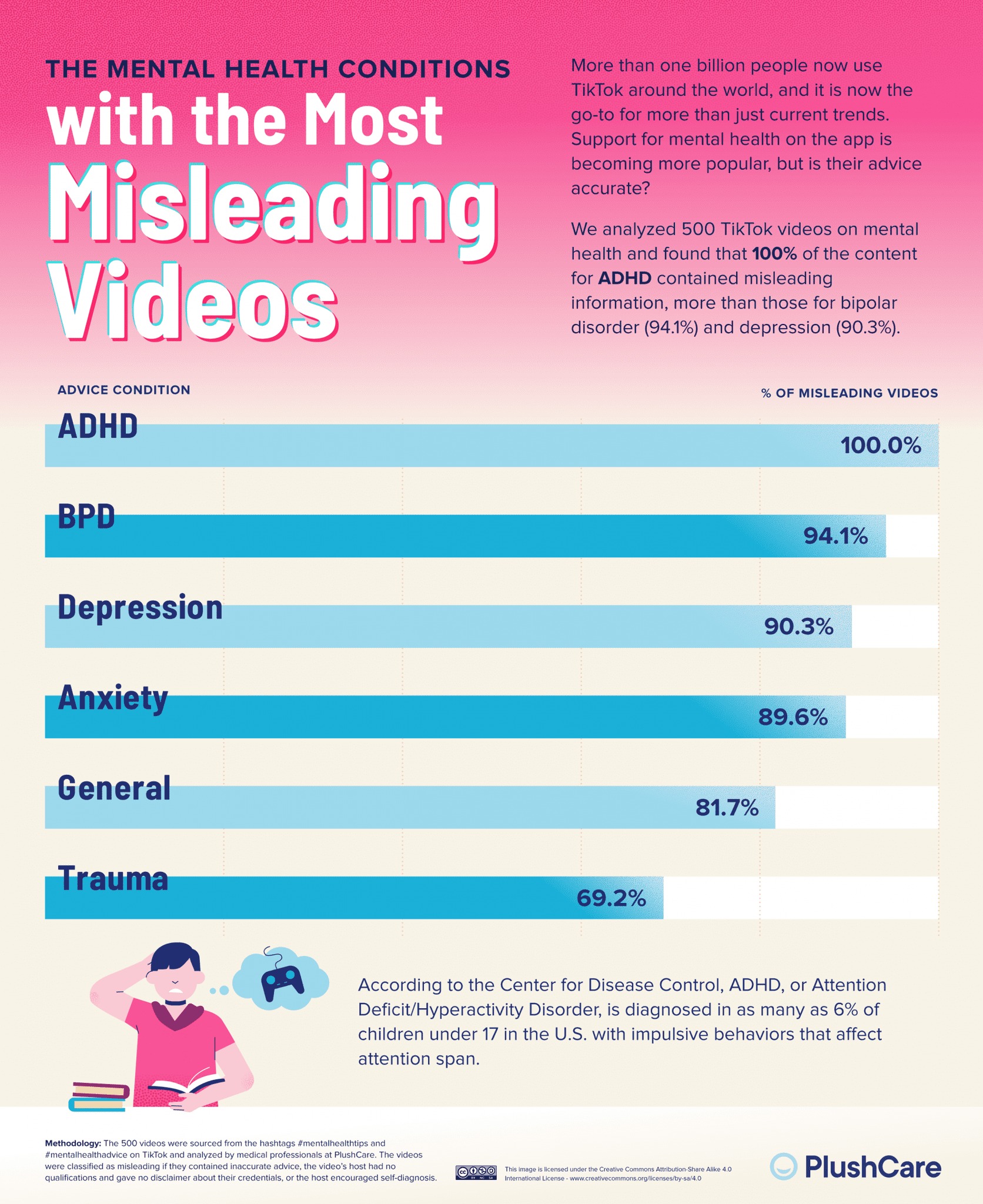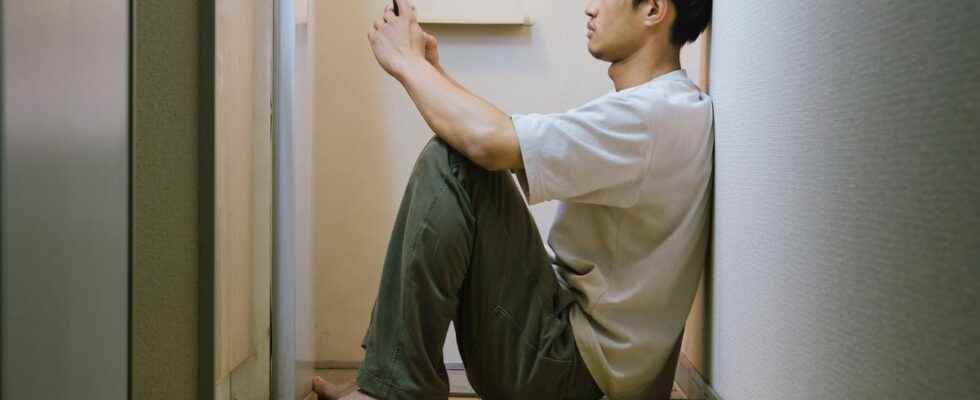Published on
Updated
Reading 2 mins.
On TikTok, advice to improve your mental health, fight against your anxiety or detect the symptoms of depression are commonplace. Followed by millions of users, are these tips really safe?
Young people increasingly use social networks as a search engine. On TikTok in particular, content relating to mental health is one of the most popular on the platform, so much so that the Chinese giant has itself created a page dedicated to “mental well-being” if you type in the search bar “mental health” (“mental health”).
Faced with this ocean of content, the question remains whether these tips are relevant or rather misleading. This is why the platform PlushCarewhich specializes in booking appointments for doctors and therapists, analyzed 500 TikTok videos with the hashtags #mentalhealthtips and #mentalhealthadvice in July 2022. With the help of healthcare professionals, who are on average 15 years old experience and training at the top 50 medical schools in the United States, the platform wanted to determine whether this advice was correct or posed risks to the well-being of the user.
According to the results, 83.7% of advice about mental health on TikTok is misleading. While more than half (54%) of advice contains accurate information, just under a third (31%) is full of inaccurate information. Worse, 14% of content contains potentially dangerous information. Moreover, among the videos analyzed, only 9% of creators are qualified to help people in difficulty.

While not all advice is to be thrown away, the study highlights the importance of not believing all the information found on TikTok.
According to the study, the popularity of these videos is explained by the high price of a consultation with a therapist and the waiting times which can sometimes be very long. Users then prefer to turn to free content. The 500 videos analyzed have accumulated 3.5 million “likes”, have been watched almost 25 million times and have reached more than 43 million subscribers. A huge impact.
Watch out for ADHD videos
With over 17.9 billion views, content with the hashtag #ADHD (ADHD, Attention Deficit Disorder with or without Hyperactivity) is among the most viral topics on the platform. Videos discussing Attention Deficit Disorder (ADHD) have exploded, but according to PlushCare’s study, these videos contain 100% misleading information.
Content about borderline personality disorder (“BPD” or “BPD”) is the second to contain the most misleading advice at 94%, followed by advice about depression and anxiety (90 %).

But if this information is misleading, some advice may turn out to be correct. This is the case for half of the advice on ADHD, which nevertheless gathers 18% of potentially harmful advice. Advice on mental health in general garners the most relevant advice (59%) while videos specializing in trauma contain the most inaccurate information (58%).
In addition to social media, Gen Zers are also turning to podcasts as therapy.
